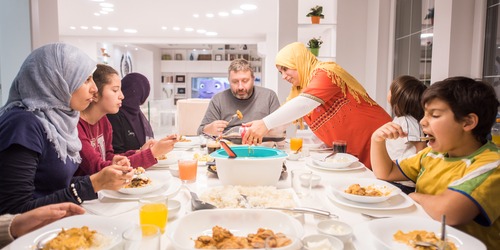
SGIE Report 2024/25: Halal food sector strengthens across Gulf, Europe; tech investments thrive
The halal food sector is undergoing considerable transformation, driven by structural shifts due to regional consolidation, consumer consciousness and rising ethical considerations.
Key trends such as regional manufacturing and strategic market consolidation, and significant investments in the Gulf, Europe, and emerging markets are dominating the halal food space.
Numbers back the optimism. Muslim consumer food spending increased 2.6% in 2023, reaching $1.43 trillion, according to the State of the Global Islamic Economy (SGIE) 2024/2025 Report. Spending is projected to reach $1.94 trillion by 2028, growing at a CAGR of 6.2%.
From a dollar-and-cent perspective, the halal foods segment recorded a total of 29 deals across mergers and acquisitions, venture capital or private equity funding during the 2023/24 period, down 41.4% from previous year’s 44 deals.
State-driven initatives
National strategies across the GCC have borne fruit, positioning the region as a pivotal hub for halal food manufacturing and processing. Key investments include Brazilian firm JBS’s new $50 million facility and Nestlé's inaugural manufacturing plant in Saudi Arabia as well as UAE-based Al Ghurair Foods’ investment in a poultry processing unit.
Sovereign wealth funds and governments across the Organisation of Islamic Cooperation (OIC) are also making substantial investments in agriculture and food production to enhance food security.
Initiatives such as a new Bahraini food holding company, Saudi Arabia’s launch of the food-tech entity Topian, Algeria’s $455 million agricultural project, and Kazakhstan’s $600 million poultry farm are gravitating towards food security and self-reliance.
European investors are also propping up their regional presence in the halal food market, with acquisitions such as Isla Délice’s purchase of German premium brand Gurkan and UK-based Takul, as well as GoodLife Foods' acquisition of Pure Ingredients.
Food security, tech looms large
The SGIE report identified a rising trend of multilateral development banks implementing food security and agricultural resilience strategies. These include Islamic Development Bank’s projects in Tunisia, Benin, Côte d'Ivoire, and Kazakhstan, as well as projects funded by African and Asian Development Banks in Nigeria, Chad, Togo, and Bangladesh.
Foodtech investments, particularly in the MENA region, are accelerating, with notable fundraising by startups such as Calo, Grubtech, and MealPlanet to support regional and global expansion efforts.
The report detailed tech-driven farming initiatives addressing water scarcity challenges, exemplified by UAE-based Pure Food Technology’s solar-powered hydroponic vertical farm and Masdar City’s collaboration with Alesca Technologies for an indoor vertical farm.
Mutual recognition agreements and strategic trade partnerships, notably Indonesia’s extensive agreements and UAE’s comprehensive economic partnership agreements, are reshaping the global halal trade landscape.
Consumer behaviour continues evolving, with increased preference for products reflecting cultural identity, ethical considerations, and geopolitical factors. The emergence of local beverage brands and healthier, mood-enhancing alternatives to alcoholic beverages are notable examples.
To download a copy of the State of the Global Islamic Economy Report 2024/25, click here.

Salaam Gateway